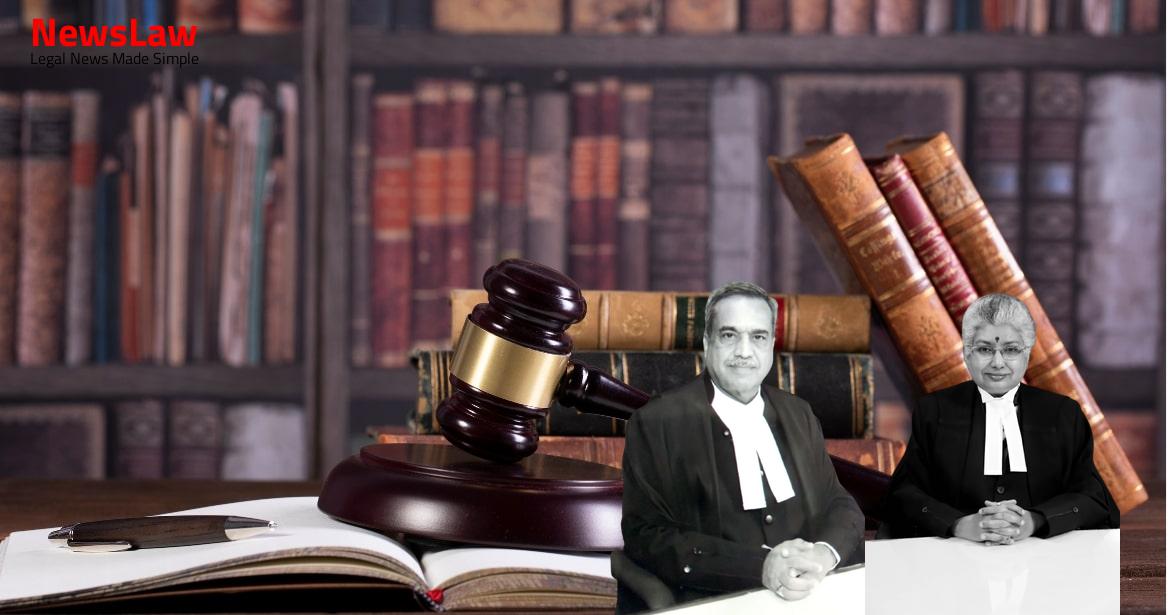On 27 July 2010, the respondent filed an application under Rule 95 of Order XXI of CPC before the Executing Court. By the judgment dated 11 April 2017, which is impugned in this appeal, the High Court dismissed the revision application by holding that the starting point of limitation for making an application under Rule 95 of Order XXI was the date on which the sale certificate was issued by the Executing Court. He submitted that this Court has clearly held that the starting point of limitation for filing an application under Rule 95 of Order XXI of CPC is the date on which the auction sale is made absolute in accordance with sub-rule (1) of Rule 92 of Order XXI of CPC.
It is necessary to reproduce Rules 92, 94 and 95 of Order XXI of CPC, which read thus: “ Sale when to become absolute or be set aside.- (1) Where no application is made under rule 89, rule 90 or rule 91, or where such application is made and disallowed, the Court shall make an order confirming the sale, and thereupon the sale shall become absolute. (2) Where such application is made and allowed, and where, in the case of an application under rule 89, the deposit required by that rule is made within sixty days from the date of sale, or in cases where the amount deposited under rule 89 is found to be deficient owing to any clerical or arithmetical mistake on the part of the depositor and such deficiency has been made good within such time as may be fixed by the court, the Court shall make an order setting aside the sale: Provided that no order shall be made unless notice of the application has been given to all persons affected thereby: Provided further that the deposit under this sub-rule may be made within sixty days in all such cases where the period of thirty days, within which the deposit had to be made, has not expired before the commencement of the Code of Civil Procedure (Amendment) Act, 2002.
(5) If the suit referred to in sub-rule (4) is decreed, the Court shall direct the decree holder to refund the money to the auction- purchaser, and where such an order is passed the execution proceeding in which the sale had been held shall, unless the Court otherwise directs, be revived at the stage at which the sale was ordered.”… Delivery of property in occupancy of judgment debtor.- Where the immoveable property sold is in the occupancy of the judgment-debtor or of some person on his behalf or of some person claiming under a title created by the judgment debtor subsequently to the attachment of such property and a certificate in respect thereof has been granted under rule 94, the Court shall, on the application of the purchaser, order delivery to be made by putting such purchaser or any person whom he may appoint to receive delivery on his behalf in possession of the property, and, if need be, by removing any person who refuses to vacate the same. Article 134 provides that the starting point of limitation for making an application under Rule 95 of Order XXI is the date on which the sale is confirmed. Thus, on the one hand, Rule 95 of Order XXI mandates that an application for possession of the auctioned property can be made by the auction-purchaser only after a sale certificate in accordance with Rule 94 of Order XXI is issued.
Whether there be failure to issue the certificate or delay of action on behalf of the court or the inaction of the purchaser in completing the legal requirements and formalities, are factors which have no bearing on the limitation prescribed for the application under Article 134. It therefore becomes clear that the title of the court auction-purchaser becomes complete on the confirmation of the sale under Order 21 Rule 92, and by virtue of the thrust of Section 65 CPC, the property vests in the purchaser from the date of sale; the certificate of sale, by itself, not creating any title but merely evidence thereof. Such being the state of law on the subject, we fail to see how the High Court could have come to the conclusion that even though the sale becomes absolute on confirmation under Order 21 Rule 92 CPC effectively passing title, the same can only be complete when evidenced by a sale certificate issued under Order 21 Rule 94, and that unless the sale certificate is issued, limitation cannot start for the purpose of an application under Order 21 Rule 95 CPC, vis- -vis
Article 134 of the Limitation Act, 1963.
Also Read: https://newslaw.in/case-type/criminal/legal-analysis-of-judgement-on-discharge-in-a-murder-case/
However, on a plain reading of Rule 95 of Order XXI, unless a certificate of sale is granted under Rule 94 of Order XXI, the auction-purchaser does not get a right to apply for delivery of possession by invoking Rule 95 of Order XXI. Having regard to the language of Order 21 Rule 95 CPC “a certificate in respect thereof has been granted in Rule 94, the court shall, on the application of the purchaser, order delivery to be made…” we have our own doubts regarding the view taken by this Court in Pattam Khader Khan case [Pattam Khader Khan v.
However, in the facts and circumstances of the present case, we are not inclined to refer the question to a larger Bench — whether issuance of sale certificate is a sine qua non or not for filing the application under Order 21 Rule 95CPC and the question is left open. Once there is a confirmation of an auction sale in accordance with sub-rule (1) of Rule 92 of Order XXI of CPC, the Executing Court, in the absence of the prohibitory order of a superior Court, is under an obligation to issue a sale certificate to the auction- purchaser in accordance with Rule 94 of Order XXI of CPC.
Though CPC does not permit an application under Rule 95 of Order XXI to be filed before the sale certificate is issued, Article 134 of the Limitation Act proceeds on the footing that cause of action becomes available to the auction- purchaser to apply for possession on the basis of the order of confirmation of sale made under sub-rule (1) of Rule 92 of Order XXI of CPC. Departure from the literal rule, by making structural changes or substituting words in a clear statutory provision, under the guise of interpretation will pose a great risk as the changes may not be what the legislature intended or desired. … When a procedure is prescribed by the legislature, it is not for the court to substitute a different one according to its notion of justice. Departure from the literal rule of plain and straight reading can however be only in exceptional cases, where the anomalies make the literal compliance with a provision impossible, or absurd or so impractical as to defeat the very object of the provision.
He comments at p.103: “In omitting or inserting words the judge is not really engaged in a hypothetical reconstruction of the intentions of the drafter or the legislature, but is simply making as much sense as he can of the text of the statutory provision read in its appropriate context and within the limits of the judicial role.” This power is confined to plain cases of drafting mistakes. Before interpreting a statute in this way the court must be abundantly sure of three matters: (1) the intended purpose of the statute or provision in question; (2) that by inadvertence the draftsman and Parliament failed to give effect to that purpose in the provision in question; and (3) the substance of the provision Parliament would have made, although not necessarily the precise words Parliament would have used, had the error in the Bill been noticed. Mohan Lal Sowcar
Also Read: https://newslaw.in/case-type/criminal/protection-of-public-servants-in-criminal-proceedings/
[(1988) 2 SCC 513, 524-25] where it was observed that the court construing a provision should not easily read into it words which have not been expressly enacted but having regard to the context in which a provision appears and the object of the statute in which the said provision is enacted the court should construe it in a way to make it meaningful. Sunni Central Board of Waqf [1959 SCR 1287, 1299 : AIR 1959 SC 198].)”
Case Title: BHASKER Vs. AYODHYA JEWELLERS (2023 INSC 730)
Case Number: C.A. No.-003844-003844 / 2023



